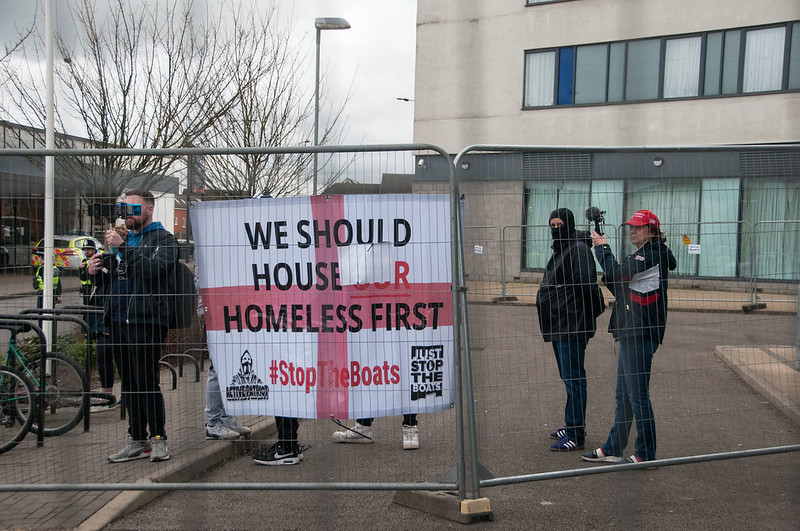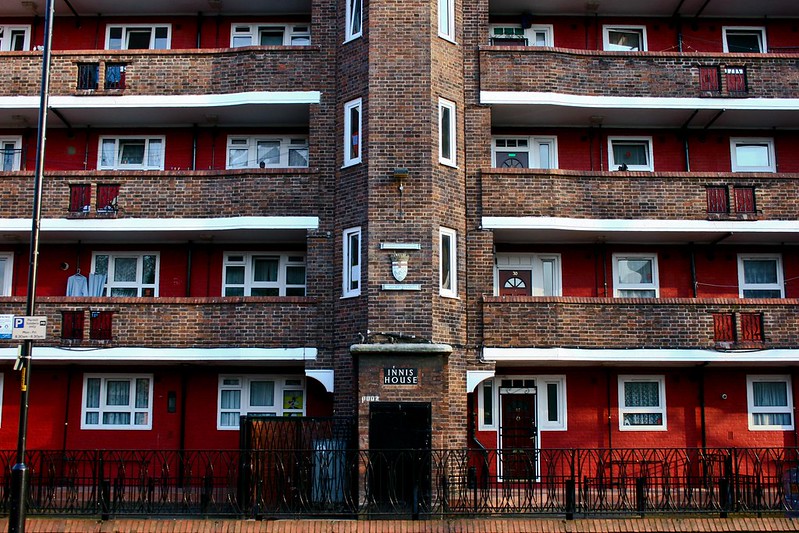

Working-class people have long felt ignored by Westminster, as if their voices and concerns simply don’t matter. The level of neglect was probably best encapsulated by the political scientist Matthew Goodwin, when he wrote 4 years ago in 2021 of “a sort of informal alliance between white elites, corporations and minorities against the white working class”.
But this peculiar type of ‘otherness’ started a long time ago.
In George Orwell’s 1937 book The Road to Wigan Pier, he writes that ‘the lower classes smell; they are physically repulsive, and the middle classes wish to keep them at a distance.’ The book narrates the harsh realities of working class life in 1930s industrial England and examines why socialism often fails to resonate with those it aims to help. Orwell, a socialist himself, combines sharp observation with personal reflections on class and political ideology.
Today, the white working class in Britain, although many times better in some respects from the squalid conditions of the 30’s, face harsh realities which echo experiences similar to what Orwell described. Many of the struggles of the 1960s – poor housing, wages too low to properly look after a family, and the impossibility of affording rent or buying a home – are repeating themselves today. In the 21st century.
Despite working long hours, often in physically demanding or insecure jobs, many white working class people see no real progress, socially or economically. The promise that hard work would lead to a better life has worn thin, replaced instead by a grinding sense of stagnation. While politicians and pundits debate statistics, entire communities are trapped in a cycle of financial stress, watching opportunities slip further and further out of reach, as inequality grows. The frustration isn’t just about money; it’s about dignity, respect, and the growing fear that their children will face the same struggles. Or worse.

In addition, many working class communities have long felt that they are perceived as the ‘enemy within’ – a sentiment that deepened as policies since the time of John Major’s premiership (and even before under Margaret Thatcher), continued to erode their economic security and social fabric. For example, the Child Support Act of 1991 was widely criticised for its punitive approach, disproportionately targeting single parents – often mothers – and pushing many into deeper poverty due to unrealistic payment demands and aggressive enforcement. Meanwhile, the closure of coal mines, the decline of manufacturing, and the deregulation of industries left entire regions without stable employment. Decades later, they feel that little has been done to reverse these negative effects, with austerity measures and welfare reforms under subsequent governments only compounding their struggles. Further, because the type of labour organising of the past has consistently been decimated by Neoliberalism, most working class people are not part of a union (can they afford union membership fees on meagre wages?) so they become isolated, associating mostly with people who are just like them.
So poor families are continually forced into homelessness and rely on Food Banks for food. Their children struggle with academic attainment, with parents who are chronically underpaid (so cannot afford things like private tuition). They feel under-appreciated at work, so are not happy with their jobs. It’s no surprise then that many silently struggle with depression…
And most do not have benefactors to help them nor accessible pathways to break free from their dire circumstances
Gentrification is another contributory issue. Gentrification was accelerated under New Labour. And while cities like London and Manchester saw shiny redevelopments spring up – it did little for the poor people actually living and working in those areas. Most of them couldn’t afford the rents of the new developments, and were ‘pushed out’ into less suitable accommodations, sometimes far away from their friends and families.
At the same time, successive governments failed to push through meaningful laws to protect workers beyond the basic minimum wage. Low-wage earners in factories, entertainment, leisure, supermarkets and other non-skilled work started to struggle to earn enough to cover rent, bills, and food, let alone raise a family. For many years, the real Living Wage, now calculated by the Living Wage Foundation as £12.60 per hour across the UK (and £13.85 in London), remained out of reach for millions.
Instead of policies that guarantee fair pay, secure hours, or affordable housing, workers in these sectors were left scraping by, often relying on food banks or multiple jobs just to get by, and in that time, employed on non-secure zero-hours contracts. In other words, they felt like while business owners and the moneyed folk benefited, those who were employed and were tasked with greasing the machinery that helped these people make their wealth did not share in the profits.
This idea of ‘Shared Prosperity’ deserves a bit of an exploration. Often invoked to describe economic progress, and yet if you look closely it doesn’t fully capture the reality of what has unfolded in British society the last 60 or 70 years. While prosperity has certainly arrived for some, it has not been shared proportionally or indeed by most people. In particular, many large British companies – such as Unilever, Shell, BP, HSBC, and AstraZeneca – generate a sizeable portion of their revenues abroad, bringing significant amounts of wealth back to the UK. However, this wealth has largely been concentrated among shareholders, who are disproportionately affluent individuals and institutional investors. The working class, by and large, have not been meaningful beneficiaries of this ‘prosperity’, as wage growth has stagnated and economic security has eroded for many. And successive governments have done little to correct what may be considered as an anomaly.
These dynamics echo a similar picture as what was happening in previous decades, where companies like Lonrho, the East India Company, and Rio Tinto ventured far away from the British Isles to foreign lands in Africa, Asia, and Latin America. Through their work, these companies generated vast amounts of wealth and became powerful entities. But that wealth only enriched the upper and middle classes of the British establishment – people like Cecil Rhodes, Lord Leverhulme, and the aristocratic elites. Notably, this wealth did not ‘trickle down’ to ordinary people, as had been promised by economists like Milton Friedman and Arthur Laffer, as well as by the UK governments of Margaret Thatcher and John Major.
Then there was Brexit, which deserves its own brief discussion.
Brexit became a focal point for working-class frustration in Britain, especially in communities already feeling economically and culturally sidelined. After years of de-industrialisation, insecure work, and austerity, many disenfranchised people saw it as a chance to “take back control” and push back against an out-of-touch political class. For these voters, leaving the EU wasn’t just about economics – it was about identity and sovereignty. And some of those voters either weren’t sufficiently interested to investigate the claims of ‘Brexiteers’, or they no longer cared.
But the reality of Brexit has only made things worse. The economic fallout hit hardest in the very areas that backed the Leave campaign, with job losses, higher costs, and shrinking public investment. Instead of renewal, many face even greater insecurity, turning Brexit from a promise of liberation into another chapter of decline. Of course the EU has contributed to all this.
Then, there is the issue of immigration.

To many working class communities, the pressures of immigration only added to their sense of being overlooked. The arrival of workers from EU countries like Poland and Romania was often seen as undercutting wages and job security, while the continued influx of asylum seekers – though a separate issue that’s nevertheless related – fueled resentment over competition for housing, school places, and resources which were already perceived as “scarce”. A persistent, if misleading, belief took hold: that asylum seekers received better treatment from the state than struggling white British families. This perception was reinforced by high-profile schemes like the use of hotels to house asylum seekers, funded by taxpayers, while local services remained stretched, or were being cut back. For some working class people, it all felt like one group of newcomers had simply been replaced by another, with little consideration for the communities already struggling to get by.
The result has been a deep-seated frustration, not just with immigration itself, but with the government system that seems to “prioritise others” over their own needs, and which seemed to not be concerned over “filling their neighborhoods with strangers.”
Thus, taken together these factors has had the effect of deepening divisions in British Society. And in the case of Brexit, what started as a political and economic decision turned into a culture war, pitting “metropolitan elites” against “left-behind” towns.
Now, many Leave voters feel their choice is dismissed as foolish or harmful. And when they speak out and go onto demonstrations to protest against government policy, and are met by the police, it further increases the sense that political elites have been trying to silence dissent. In the end, this pushes them further from mainstream politics, and into the arms of fringe parties and divisive opportunists.

